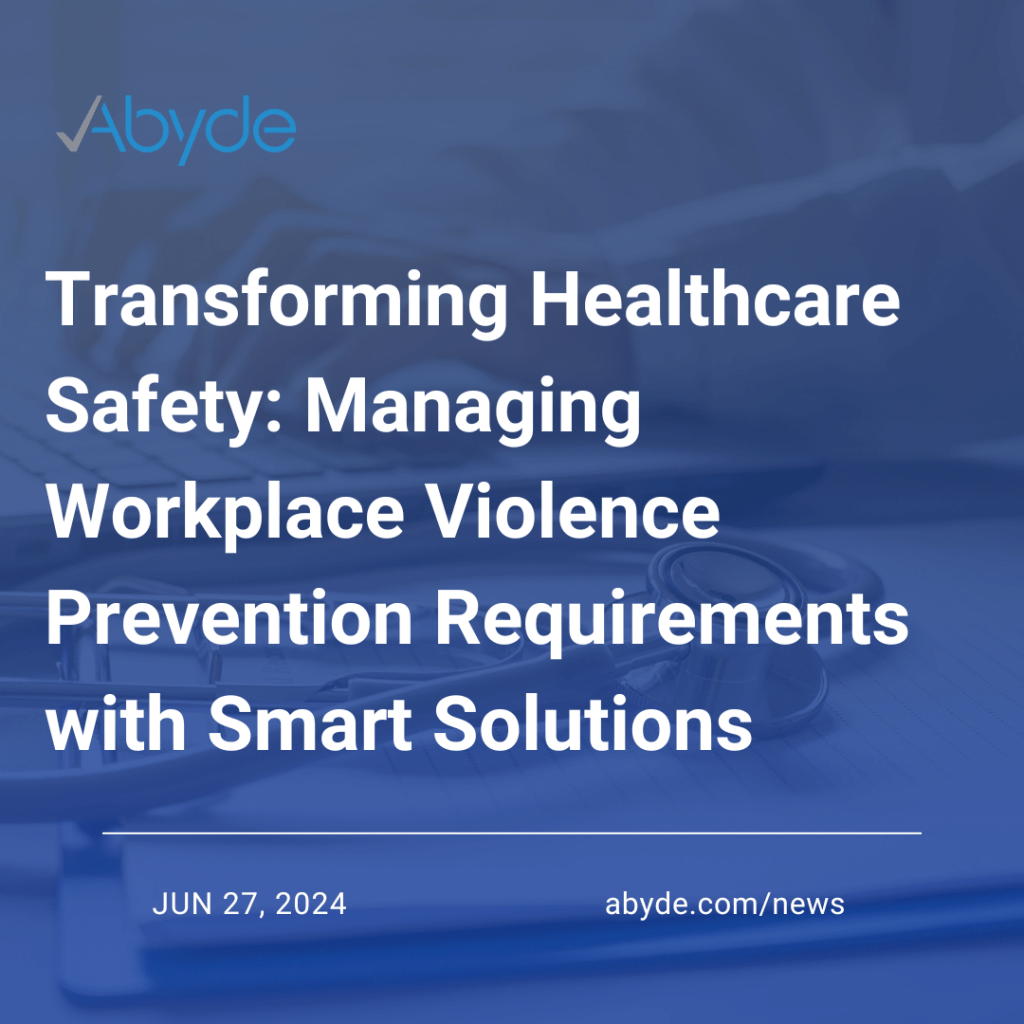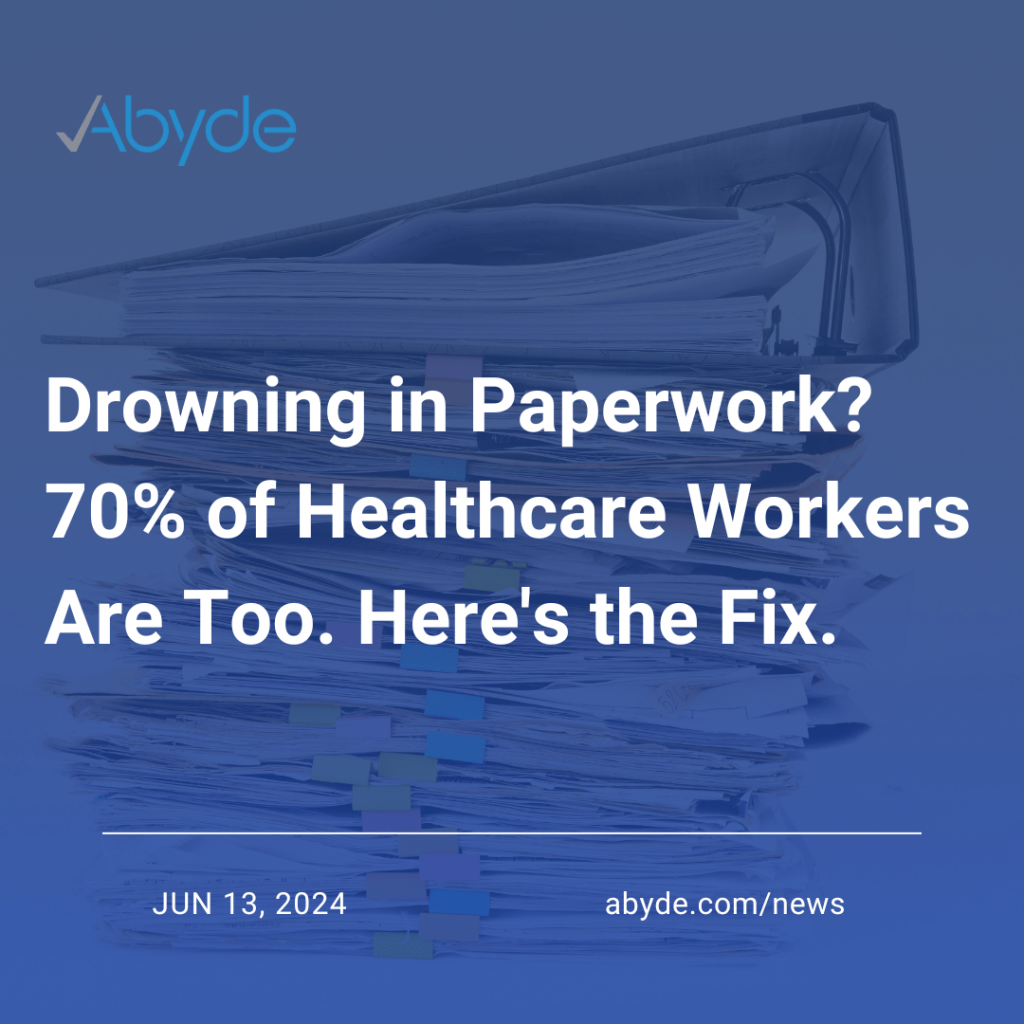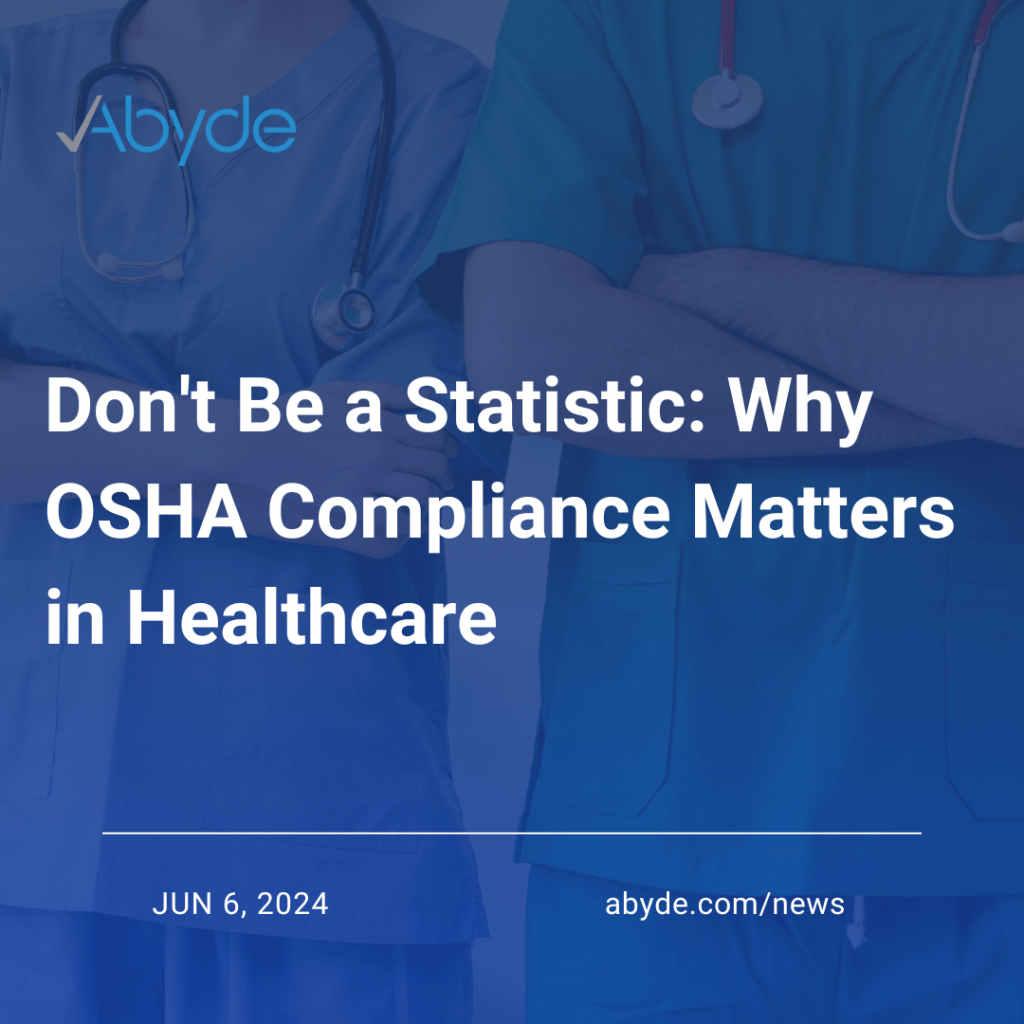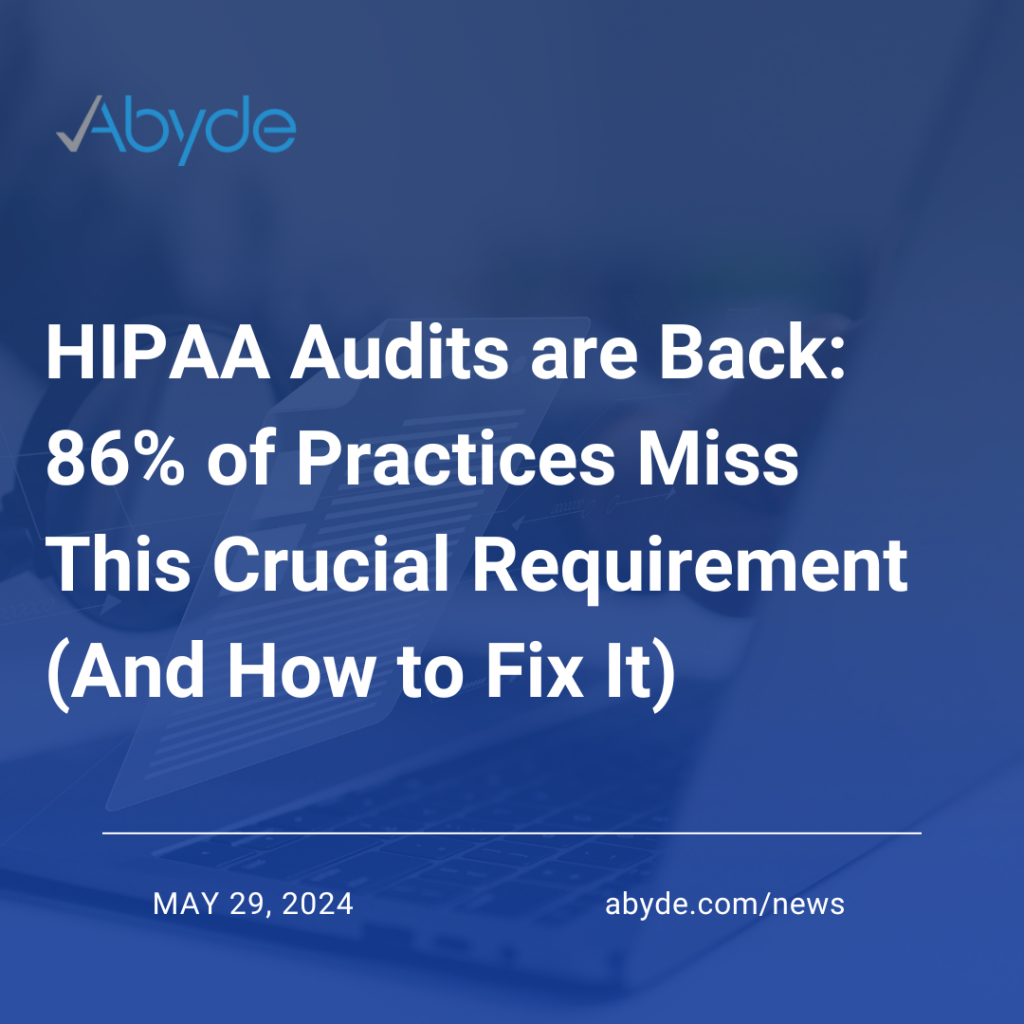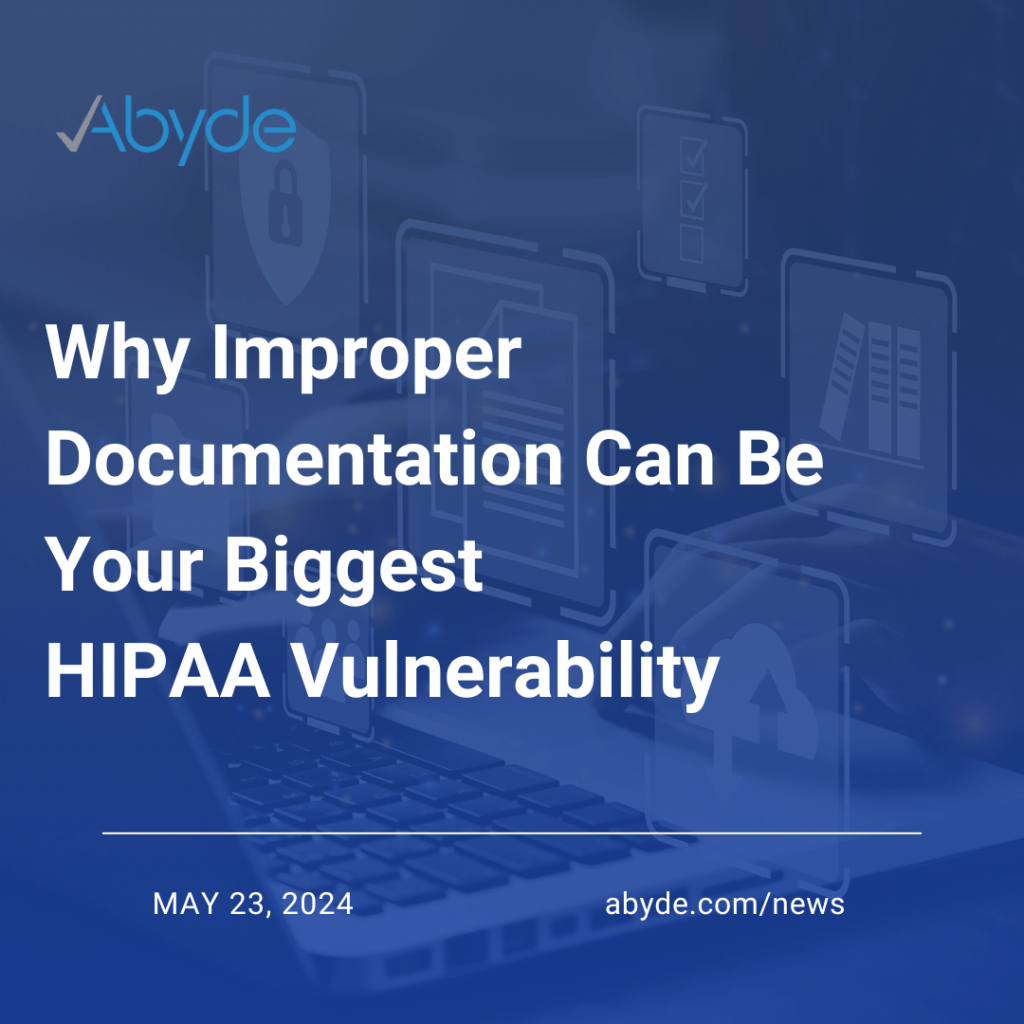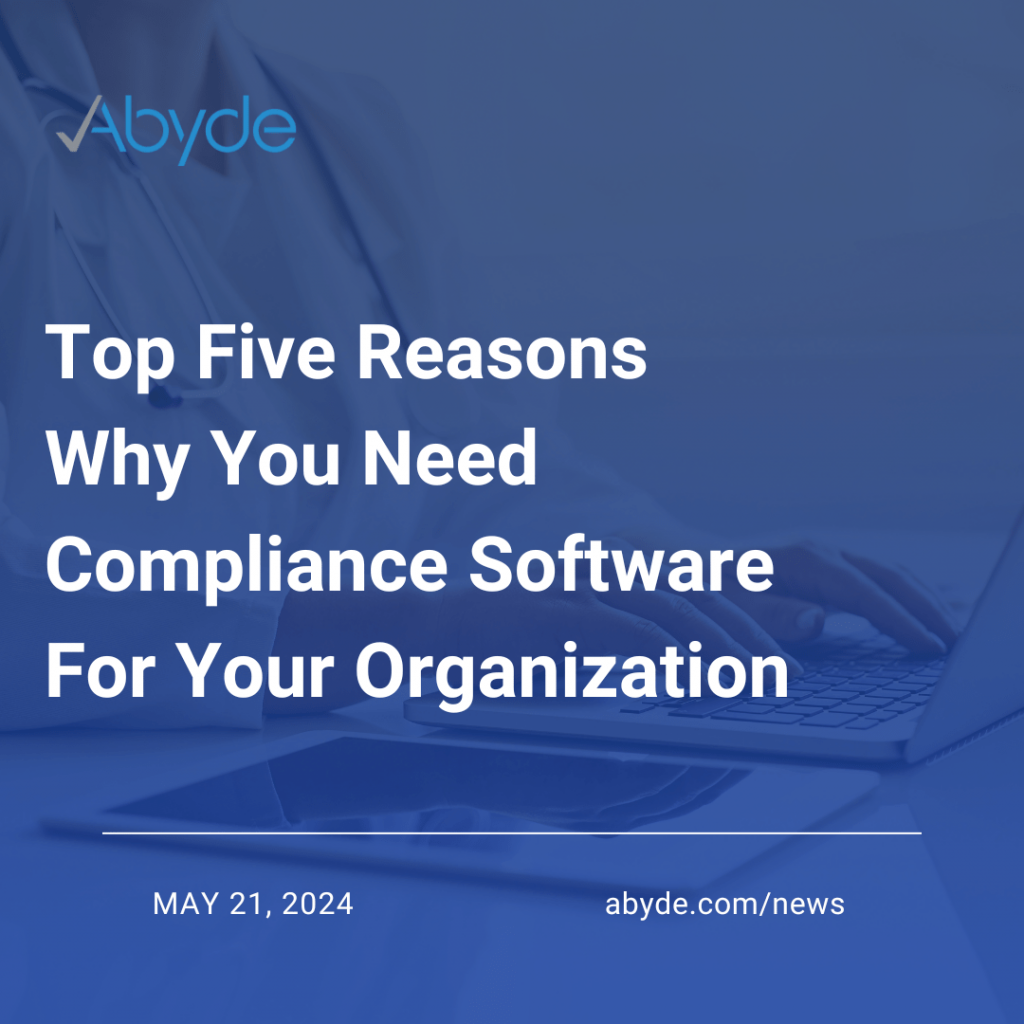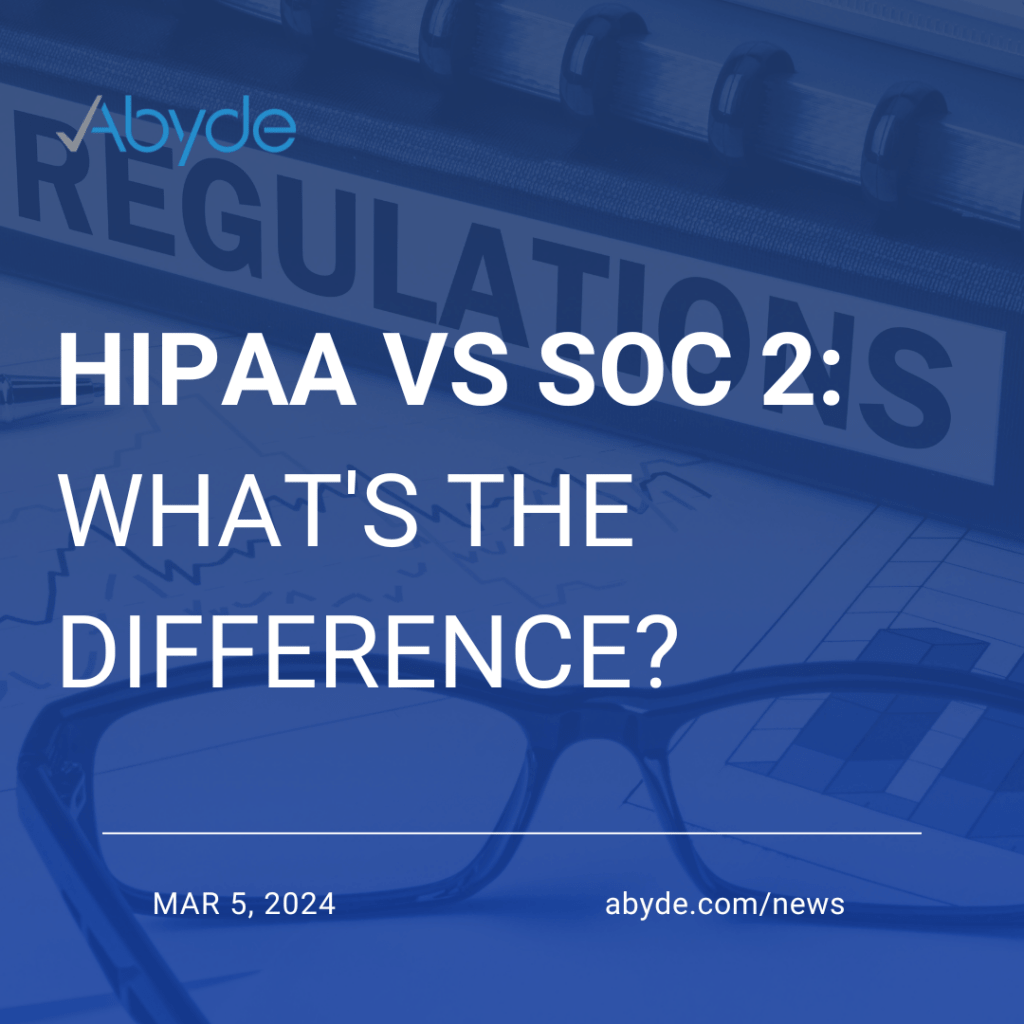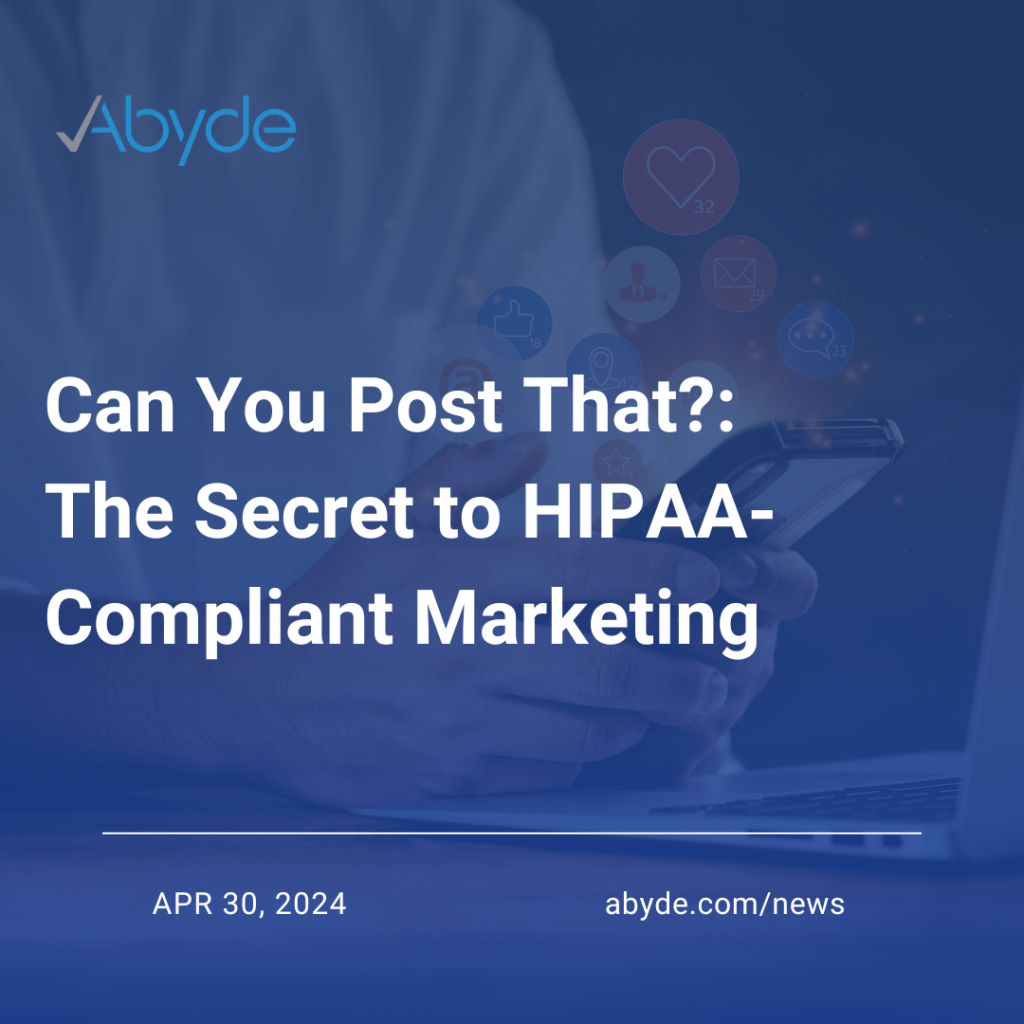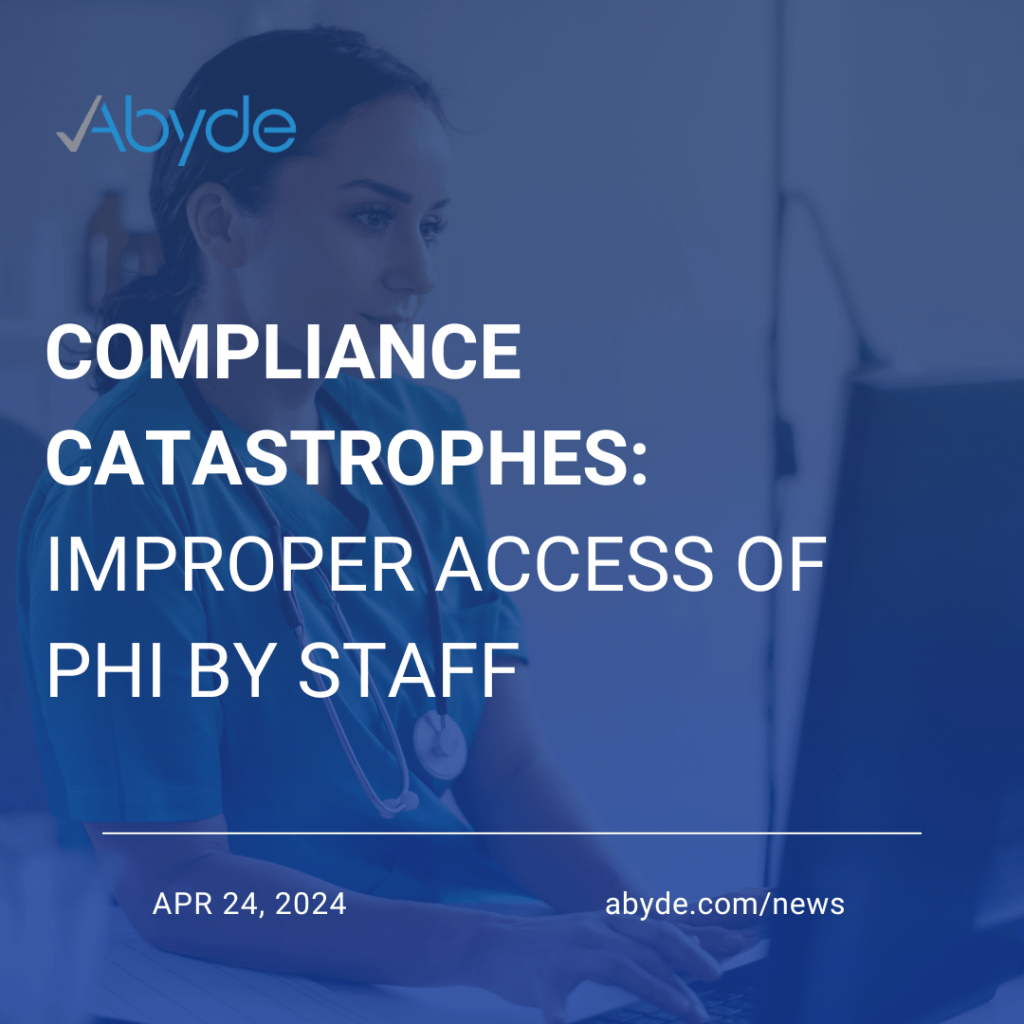June 27, 2024 Workplace violence, unfortunately, is a highly prevalent experience in healthcare. Shockingly, healthcare workers are five times more likely to experience workplace violence than any other industry. Despite the challenges, healthcare workers assume an essential role, and it’s crucial for staff to feel secure and supported in their environment. Legislation at the state level ensures that all staff, regardless of industry, receive proper training and care for workplace violence. For example, California has passed a workplace violence bill, SB 553, which will take effect on July 1st. This bill will significantly impact workplaces by mandating expanded documentation, training, and other measures related to workplace violence. While this is still at the state level, several states are enacting legislation around workplace violence. While California’s SB 553 is the first to be enacted, Texas is quickly following suit, with a similar law going into effect in September. As more states pass similar laws, they’re likely to become federal legislation, meaning regardless of state, it’s important to stay informed about new requirements. What is SB 553? SB 553, California’s workplace violence bill, is one of the newest pieces of legislation drafted by CalOSHA. This bill introduces new requirements, such as an expanded injury log for specific workplace violence injuries, thorough training, and a workplace violence prevention plan (WVPP). These new elements will ensure staff is properly educated on this topic and that a process is in place if a situation arises. Similar to HIPAA documentation, this documentation must be customized to fit your specific practice or business. Using templates won’t suffice. In the event of a workplace violence incident, your team must understand the process for handling the situation and identify the risks and vulnerabilities that could most affect them. This involves outlining designated roles and responsibilities. This detailed plan is known as a Workplace Violence Prevention Plan or WVPP and is a new requirement in all workplaces in California (and more states soon to follow). This bill provides a detailed process for preventing workplace violence. If your practice already follows CalOSHA’s requirements for workplace violence in healthcare, you are exempt from this new law for the general industry. It includes requirements for thorough training, a workplace violence protection plan, and mandatory incident reporting. Just as sharps injuries must be reported separately, workplace violence incidents must also be reported separately. How Managing OSHA for Healthcare with Smart Solutions Can Help As new laws are enacted, old documentation and processes can quickly become obsolete. The compliance landscape constantly changes, so staying informed is crucial to safeguard your practice. Intelligent, cloud-based software solutions like Abyde receive frequent updates, providing your practice with the latest information necessary to keep it secure and compliant with new laws. Dynamic software also rapidly updates your policies, procedures, logs, and more, continuously updating your documentation with the latest developments. Download Abyde’s Workplace Violence Prevention checklist today to see where your OSHA program currently stands to protect your business.
Drowning in Paperwork? 70% of Healthcare Workers Are Too. Here’s the Fix.
June 13, 2024 Did you know that more than 70% of healthcare workers spend over 10 hours a week on paperwork? When working in healthcare, the last thing you might expect is to spend most of your time on paperwork, but it’s a reality for many. Paperwork might seem monotonous and time-consuming, but it’s a crucial requirement for HIPAA. Your compliance program must be documented to prove you’re protecting your patients. Why can’t I use templates? It’s essential to avoid cutting corners with compliance paperwork. Personalized documentation is key, so using templates isn’t compliant. Templates are generic, whereas documentation represents the specific policies and procedures for your location that must be followed to protect your patients’ PHI (Protected Health Information). Many policies and procedures are required to ensure staff safety and PHI. Some examples include the Disaster Recovery Plan, the Breach Notification Policy, and the Electronic Data Disposal Policy. They must be personalized for your practice, such as including local emergency phone numbers in the Disaster Recovery Plan or defining specific roles and responsibilities in policies. Additionally, if responsibilities change, policies and procedures must be updated, ensuring the latest info is documented. By drafting personalized documentation, your practice ensures its staff knows their responsibilities regarding protecting PHI and the procedures that must be followed. What else is required documentation? Drafting documentation is the first step, but organizing the content is just as important. Policies and procedures should be easily accessible so staff can review them effortlessly. In any situation, your team should be able to access the plan quickly, stay calm, and review the documentation. The documentation should also be clear and understandable for the staff. Staff should have easy access to policies and procedures, which should be reviewed during onboarding to provide new employees with the necessary resources. How Software Solutions Can Help In the past, documentation was often seen as an overwhelming, overflowing binder, but that doesn’t have to be the case. As technology advances, your compliance program needs to keep up as well. Nowadays, healthcare workers can use software solutions to create personalized documentation quickly. Software solutions can help eliminate the possibility of human error and utilize cutting-edge technology to dynamically generate policies that meet the latest requirements in the healthcare industry. Almost all healthcare employees spend numerous hours every week on paperwork. So why not significantly reduce the time spent on these activities and achieve compliance in minutes? Software rapidly creates personalized documentation, including staff names and responsibilities, and provides organizational structure. Instead of disorganized physical binders, you can have an intuitive solution with policies and procedures hosted in the cloud that are easily accessible with an internet connection. To learn more about how Abyde can save your practice countless hours on documentation, schedule a software demo.
Don’t Be a Statistic: Why OSHA Compliance Matters in Healthcare
June 6, 2024 Did you know that the healthcare industry has some of the highest rates of illness and injury despite being a place for healing? OSHA, or the Occupational Safety and Health Administration, is the governing body that protects workers’ rights throughout all industries. Given the healthcare industry’s risks and hazards, such as exposure to bloodborne pathogens, sharps, chemicals, and more, healthcare workers’ rights under OSHA are particularly crucial. OSHA enforces the protection of healthcare workers’ rights through legislature, audits, and fines that every practice needs to know about. Why is OSHA Important in Healthcare? OSHA is vital in reducing risks and illnesses in the healthcare industry. Since its introduction, OSHA has led to a significant drop in workplace fatalities and diseases, with the average number of cases decreasing from 10.9 per 100 in 1972 to 2.7 in 2022 – a 75% decrease. Reducing workplace incidents empowers and protects healthcare workers. This confidence and protection translate to a culture of compliance, where better working conditions elevate patient care and, ultimately, create a healthier environment for everyone. What does it mean to be OSHA Compliant? Ensuring worker safety in healthcare requires ongoing attention. OSHA compliance must be proactive, involving the implementation of appropriate safeguards and regular, role-specific training. Practices need to provide training that covers workers’ roles and responsibilities so that they have the tools and knowledge necessary to stay safe at work. A Facility Risk Assessment (FRA), or analysis of a practice’s vulnerabilities, is required as part of a proactive OSHA compliance program. An FRA enables practices to address issues proactively before they escalate into unsafe workplace situations. OSHA compliance also involves providing workplace safety equipment, such as Personal Protective Equipment (PPE) like gloves, masks, and other healthcare gear. To maintain a safe workplace, it is important to have easily accessible and transparent policies and procedures for all employees. This provides clear guidance to the staff on how to handle specific situations. For instance, Safety Data Sheets provide details on proper precautions and the properties of substances when handling chemicals, which are essential for ensuring a safe workplace. Reporting these incidents and ensuring they are appropriately followed up is crucial when issues occur at work. Employees should also feel comfortable and safe discussing potential violations without fearing repercussions. How Cloud-based Software Solutions Can Help Managing OSHA can be complex for a practice, but utilizing a software solution can streamline the process. These intelligent solutions can dynamically manage OSHA requirements, like policies and procedures, ensuring clear documentation is easily accessible and always up to date, which minimizes risk to the business. Beyond streamlining workflows, compliance software is a centralized resource. From the FRA to user-friendly training modules, a comprehensive software suite empowers employees to stay safe and informed on the job. To learn more about how Abyde can assist your practice in developing a culture of OSHA compliance, schedule an educational consultation.
HIPAA Audits are Back: 86% of Practices Miss This Crucial Requirement (And How to Fix It)
May 29, 2024 The random HIPAA audits are officially back. Melanie Fontes Rainer, Director of the Office for Civil Rights (OCR), confirmed in a recent interview that the OCR is proactively conducting audits as part of a series of improvements. Following a five-year hiatus from proactive audits, the Office for Civil Rights (OCR) has been updating key HIPAA regulations. For instance, the OCR is also releasing an updated Security Rule by the end of the year to better reflect innovation since its original publication over twenty years ago. As the OCR continues to advance HIPAA rules, it’s vital to be prepared with a foundation of a compliant practice. At the base of this foundation is the Security Risk Analysis (SRA), a commonly missing HIPAA requirement. During the last round of proactive audits, 86% of Covered Entities could not show a properly documented SRA for their practice. What is a Security Risk Analysis (SRA)? The OCR defines an SRA as “an accurate and thorough assessment of potential risks and vulnerabilities to confidentiality, integrity, and availability of electronic Protected Health Information (ePHI).” The SRA is focused on protecting ePHI. It is a continuous requirement and needs to be updated when significant changes occur to your practice. It’s best practice to complete the SRA at least annually. An SRA is a complete evaluation of how PHI is protected. Questions include encryption practices, staff training, disposal of PHI, and more. Why is the SRA Important? The SRA documents proof that a practice has appropriate safeguards to protect sensitive patient data. It requires practices to conduct self-audits and identify risks and vulnerabilities before they become issues. This means anticipating vulnerabilities and implementing preventative measures before sensitive data is compromised. If followed correctly, the SRA acts as a vital line of defense, helping prevent data breaches, ensuring patient privacy, and building trust within the healthcare system. How do I complete an SRA? Completing an SRA is crucial for protecting sensitive patient data. The good news is that several approaches are available, each with varying costs and timelines. Before starting an SRA, it is essential to have an HCO, or HIPAA Compliance Officer, in place to manage HIPAA documentation and the SRA process. You can complete the SRA internally using online resources provided by the OCR. While there are free resources, this option is less intuitive than others, can be time-intensive, and requires significant team effort. Manual audits can take weeks to months to complete. You could also hire an external auditor or consultant to complete your SRA. Hiring a consultant might reduce the burden on your team but can be costly. The average price of an external auditor is in the thousands, with some costing upwards of $20,000. Additionally, these external audits can take months. An alternative option is intelligent compliance software, which provides significant benefits for meeting the SRA requirement and more. It allows you and your practice to navigate the SRA cost-effectively and efficiently. While a manual audit usually takes weeks to months, an audit assisted by software can be completed in significantly less time, simplifying the SRA process, and saving your practice substantial costs and assuring protection. Why Should I Use Compliance Software? As the Security Rule is updated, your compliance program also deserves an upgrade. Intelligent software solutions can help you easily fulfill complex HIPAA requirements, prepare for potential risks and vulnerabilities, and protect patient data. Many organizations overlook the SRA, but software solutions can streamline the process and protect your practice. To learn more about Abyde’s innovative software solutions, schedule an educational consultation.
Why Improper Documentation Can Be Your Biggest HIPAA Vulnerability
May 23, 2024 Secure documentation is essential in any industry. However, in healthcare, there’s even more on the line. Ensuring HIPAA compliance with proper patient data care is crucial. Let’s explore how it works. Required Documentation for HIPAA HIPAA requires Covered Entities (CEs) and Business Associates (BAs) to document how they manage Protected Health Information (PHI). Your organization needs to document its compliance process to be HIPAA compliant. This process includes your initial Security Risk Analysis, identifying risks and vulnerabilities, completing training, and any partnerships your organization might have with BAs. Under the Breach Notification Rule, any breach must be documented and reported, and affected patients must be notified. Written proof is required that your organization takes appropriate measures to protect patient data, especially when dealing with PHI. Additionally, your practice’s policies and procedures must be easily accessible and personalized for your location. Personalized documentation of policies, like a Disaster Recovery Plan, details the best course of action for your employees and their roles if a situation arises. What Happens if Documentation isn’t in Place? When documentation isn’t in place, it can lead to fines. Proper documentation is crucial for HIPAA compliance. HIPAA mandates personalized documentation of your practice’s compliance program, which identifies your practice and shows that appropriate measures are in place to secure PHI. The Business Associate Agreement (BAA) is a legally binding contract required for Covered Entities to establish with their Business Associates. The BAA outlines each party’s responsibilities for securing PHI. This documentation is vital for ensuring compliance with HIPAA regulations and identifying duties in the relationship. Many organizations have faced fines for neglecting this essential documentation. For instance, the Center for Children’s Digestive Health was fined $31,000 for lacking a BAA. While thorough documentation practices are essential, many practices using manual methods often fall short, leading to HIPAA violations. At the latest HIPAA Summit, the OCR stated that some of the most common recurring HIPAA violations include incorrect documentation, especially missing BAAs. It’s a simple task to ensure accountability, but it’s necessary. How Intelligent Software Solutions Can Help Documentation is essential but can be overwhelming. Compliance software simplifies the process, saving countless hours and protecting your practice. Innovative cloud-based solutions enable you to auto-generate and manage your policies and procedures quickly. You can create your documentation dynamically in seconds, ensuring your practice has the most up-to-date documentation. BAAs, a commonly overlooked document, can also be managed within software. Drafting the agreement and sending the documentation through the software simplifies the process. To learn more about how Abyde can streamline and simplify your HIPAA compliance, please schedule an educational consultation.
Top Five Reasons Why You Need Compliance Software For Your Organization
May 21, 2024 As a healthcare provider, staying updated on evolving regulations is crucial to protecting your practice, its reputation, and its patients. But complying with regulations can be daunting; even the most diligent teams face challenges. In light of the recent Change Healthcare Breach, it’s more important than ever for practices of all sizes to reevaluate their compliance approach. This is where automated compliance software provides an excellent solution to streamline, simplify, and secure the process. This blog post explores the benefits of intelligent software compliance programs for protecting your practice in place of manual compliance efforts and how software can help you succeed. Top Five Reasons Why You Need Compliance Software 1: Automate Tasks & Reduce Manual Work An average manual HIPAA audit can take anywhere from several hours to several months to complete. When patient care is the focus, this is wasted time. Intelligent, user-friendly software assists practices in understanding the process and managing their time efficiently. With algorithms running the program, employees can dedicate more time to patient care, optimize workflow, efficiently schedule appointments, and reduce wait times. 2: Avoid Fines with Compliance Software The average cost of a HIPAA fine in 2023 was $321,269. In comparison, investing in software is much less expensive than a potential fine, saving practices hundreds of thousands of dollars with preventative measures. Ensuring ongoing compliance is the key. Software simplifies necessary processes to ensure compliance, potentially reducing common infractions that result in fines and penalties. 3: Effectively Manage Risk HIPAA is highly detailed and demanding, requiring practices to maintain meticulously documented and ongoing compliance programs. With centralized documentation, integrated Security Risk Analysis (SRA), and automated ongoing risk monitoring, risk can be mitigated. Software can dynamically generate policies and reporting, streamlining cumbersome processes. With thorough reporting, organizations can make informed decisions and proactively identify gaps. Stronger risk management protects practices against threats to their reputation, finances, and operations. 4: Develop a Thorough Understanding of Compliance Understanding the regulations is essential for maintaining HIPAA compliance. Access to comprehensive training and up-to-date resources to ensure compliance is another advantage of software solutions. Regular training establishes a foundation for your organization to foster a culture of compliance. Software companies also provide dedicated support teams to assist your practice with questions. 5: Stay Ahead of Regulations The Office for Civil Rights is always improving and updating HIPAA rules to keep up with the latest technology and practices. Melanie Fontes Rainer, the director of the OCR, recently discussed the HIPAA Security Rule, stating that HIPAA is technology-neutral and scalable, but it doesn’t reflect how we receive healthcare today. This is particularly important considering the OCR has recently issued new HIPAA and online tracking guidelines. As technology advances, so does regulation. Changes in regulations are challenging to keep up with. Alternatively, software is regularly updated to align with compliance changes, simplifying reviews of the evolving healthcare landscape. You can minimize risk and stay compliant by receiving the latest HIPAA updates from your software provider. How Abyde can help Manually managing HIPAA compliance can be risky and error-prone, leaving your practice exposed. Instead, you can easily navigate requirements and safeguard your practice while saving significant hours and costs. All while promoting a culture of compliance through staff education on regulations and requirements, it’s all possible with software by Abyde. To learn more about ensuring your practice is compliant, email info@abyde.com and schedule an educational consultation.
HIPAA vs SOC 2: What’s the Difference?
Students must be equipped with the skills to navigate the digital world effectively, including using computers.
Strong Passwords, Strong Protection: World Password Day
May 2, 2024 Happy World Password Day! To celebrate, let’s refresh your password etiquette. With the most recent updates on the Change Healthcare breach, you don’t want to miss this opportunity to do some compliance housekeeping! Let’s dive into how to ensure your passwords are HIPAA-compliant, keeping Protected Health Information (PHI) secure. Best Practices First, let’s say ‘sayonara’ to ‘Password123!’. When it comes to creating a secure password, length is crucial. Forget complex passwords with limited characters. Aim for at least 8 characters, using a mix of uppercase and lowercase letters, numbers, and symbols. This creates a longer and more challenging code to crack. Next, create passphrases instead of passwords. Consider using easy-to-remember passphrases instead. A good example would be including your favorite book or restaurant in a sentence. For example: “MyFavoritePlaceToE@tIsThaiGardenOn46thSt!” Lastly, make your passwords unique across different accounts. Beyond the Password Two is Better than One Now that’s settled, let’s dig into the additional security steps to keep your practice safe. Don’t shy away from Multi-Factor Authentication (MFA); it’s your friend. Enable MFA wherever possible, adding an extra layer of security by requiring a second verification step, like a code from your phone, to access accounts. Imagine MFA as a second line of defense in password security. When not used properly, it can leave an open door for cyber attacks. We’ve seen this play out in the news recently. On May 1st, Andrew Witty–Chief Executive Officer of UnitedHealth Group–testified in front of Congress regarding the Change Healthcare breach. Witty stated that the attackers successfully compromised a stolen user ID and passwords due to a lack of multi-factor authentication. This attack has cost Change Healthcare a whopping $870 million… and counting! To think, this whole issue could have been avoided if they took 5 minutes out of their day to implement practical password protocols… Password Powerhouse Consider ‘hiring’ a password manager! Using a password manager can provide peace of mind, knowing your passwords are secure. These tools generate strong, unique passwords and securely store them, eliminating the need to remember countless complex combinations. Just remember to use a strong master password for the manager itself! Finally, don’t forget to update your passwords at least three times a year and immediately if you suspect a security breach or phishing attempt. What’s Next? Think of password etiquette like flossing your teeth – not the most fun activity, but neglecting it can lead to painful consequences. That’s where Abyde can help simplify your practice’s everyday compliance needs. Abyde’s software offers an all-in-one suite of compliance resources with password and multi-factor authentication best practices training, on-call compliance experts, and much more. To learn more about compliance for your practice, schedule an educational consultation with one of our experts today!
Can You Post That?: The Secret to HIPAA Compliant Marketing
April 30, 2024 Going viral in healthcare has a much more serious meaning than in marketing. Marketing in healthcare is essential. You want more people to know about your practice. Like everything, the internet has revolutionized how patients look for a healthcare provider. The internet is most people’s first introduction to your practice, with 75% of prospective patients first searching online for a healthcare provider. Marketing and healthcare might seem like oil and water, especially when you throw HIPAA in the mix, but we promise you can do both, just with some rules. Ready to take your patient engagement to the next level? Here are some tips and tricks when it comes to marketing your practice and being HIPAA compliant. Tracking Tips One of the most common forms of marketing is online tracking tools. Have you ever searched for something online and seen an ad on another website? For example, while falling down the rabbit hole of watching cat videos, you go to another site. Suddenly, BAM! Cat toy ads on every other site. While we aren’t complaining about seeing more cute cats, this isn’t a coincidence. It’s just tracking tools at play. Almost every site you visit is trackable, with 90% of sites online having at least one tracking script installed. Online tracking tools have been in recent healthcare compliance news, with the OCR releasing new HIPAA-compliant guidance. Online tracking tiptoes into non-compliant territory, but installing software on suitable sites can be beneficial. First, when working with a marketing company and installing this tracking software, ensure a Business Associate Agreement (BAA) is signed. A BAA outlines the responsibilities of each party, in this case, your practice and a marketing company, when handling Protected Health Information (PHI). These agreements ensure that both parties are on the same page, are liable, and know the importance of protecting patient data. First, HIPAA does not apply to unauthenticated public sites like your practice’s homepage. Once patients are logging in, that’s when HIPAA comes into play. The information tracked must be the minimum necessary, and overall, can’t relate to the past, present, or future health, health care, or payment for health care. Following the proper protocols helps avoid fines and keeps your practice running smoothly. Back in January, the NewYork-Presbyterian Hospital was fined $300,000 due to improper tracking practices. Social Media Guru We’re not expecting you to become TikTok famous, but social media can be helpful in your practice. 74% of people online use social media, and nearly half have used it to learn more about a doctor or health professional for their care. A social media page can be like a welcoming front door for patients. So, if you’re using it, make sure it’s HIPAA-compliant and shines a light on your fantastic practice! When posting on social media, ensure PHI or patients who still need to sign a media consent form are visible. While we know you might be excited about a patient’s new smile before and after braces, without consent, you might not be so happy with the fines. In Abyde’s software, we feature a media consent form, helping to keep your practice complaint. Raving Reviews Now, we’ve all read Google reviews. Whether it be the new Mexican restaurant up the street or your new general practitioner, we rely on others’ experiences when making a decision. Over 70% of patients trust Google reviews when searching for a new healthcare provider. When responding to reviews, it’s essential to follow the simple rule: less is more. You can reply to reviews; make sure that identifiable information about a patient isn’t shared. For instance, even if it’s a lovely review, sharing a patient’s treatment online is unnecessary. It’s essential to keep your cool when responding to these messages. If it is a negative review, take it offline! Offer secure forms of contact for a patient, addressing their needs in a HIPAA-compliant manner. We’ve seen the repercussions of a Google review HIPAA violation. Manasa Health Center LLC was fined $30,000 for sharing PHI online in response to negative reviews. Even if the negative reviews were hurtful, we’re safe to say it probably wasn’t worth that much! What’s Next? We all know social media can be a game-changer for your practice, boosting patient numbers and engagement. But with great power comes great responsibility. That’s where Abyde swoops in – streamlining compliance for your practice. Abyde simplifies compliance, and with features like the intuitive Security Risk Analysis, you’ll have all the tips and tools you need to ensure you’re compliant. So, get back to posting (safely)! To learn more about compliance for your practice, schedule an educational consultation with one of our experts today!
Compliance Catastrophes: Improper Access of PHI by Staff
April 24, 2024 It’s hump day! As we get through this middle bump of the week, we’re still rolling our series, Compliance Catastrophes; real-ish world examples of nightmare scenarios! Today, we’re looking at you, healthcare workers and Business Associates! We know you do amazing work when taking care of patients, but keeping data secure is a part of building an awesome practice or business environment. When given the keys to keep Protected Health Information (PHI) safe, it doesn’t mean to open the treasure chest of data! When working in this field, you’re around a lot of sensitive information, and it’s vital to uphold your commitment to patients by keeping it confidential! We know it’s not all healthcare workers or their associates, but more people break this rule than you’d expect. We’re getting scientific! There was a recent study that highlighted over 400 employees inappropriately accessing PHI at a hospital, and many only stopped accessing unauthorized PHI due to being warned they were caught by email. It shouldn’t take being caught to change bad behavior! You know the drill – improperly accessing PHI is a breach of trust. But just to be safe, let’s see an example of what you should not do. Now, joining us today, you guessed it, is our unlucky friend, Catastrophe Cathy. PHI Peeking Cathy was at the front desk when a familiar face showed up for an appointment. An old friend from high school that she hasn’t seen in years! They chat for a little bit, and Cathy can’t help but wonder what brought this friend in. When she’s closing up, she can’t ignore the voice in the back of her head to go look. She falls for the temptation and searches for her friend’s medical information, curious about what brought her old friend into the practice. As she’s reading about her old friend, another employee notices what she’s doing. Cathy is embarrassed and ashamed, as well as she should be! She was breaching her old friend’s PHI. That information is strictly confidential, no matter how close they used to be. Real Life: Real FinesYou might think that a situation like this could never happen to you, but it happens often and there are severe consequences. Last year, the OCR fined Yakima Valley Memorial Hospital in Washington State due to some snooping security guards. Curiosity didn’t kill the cat, but did leave it with a hefty fine! Over 400 patients’ records were looked at and the hospital was charged with a pretty expensive bill: $240,000! To avoid snooping breaches, make sure all staff are properly trained on their roles and responsibilities. Access controls need to be monitored often, ensuring staff only have access to what pertains to their role. Additionally, make sure logs are reviewed, keeping your eyes open for any suspicious activity. We all deserve our health information to be secure, and healthcare workers and business associates are at the front lines of keeping it confidential. To learn more about common compliance catastrophes, email us at info@abyde.com and stay tuned for the next in our series on our social media!
